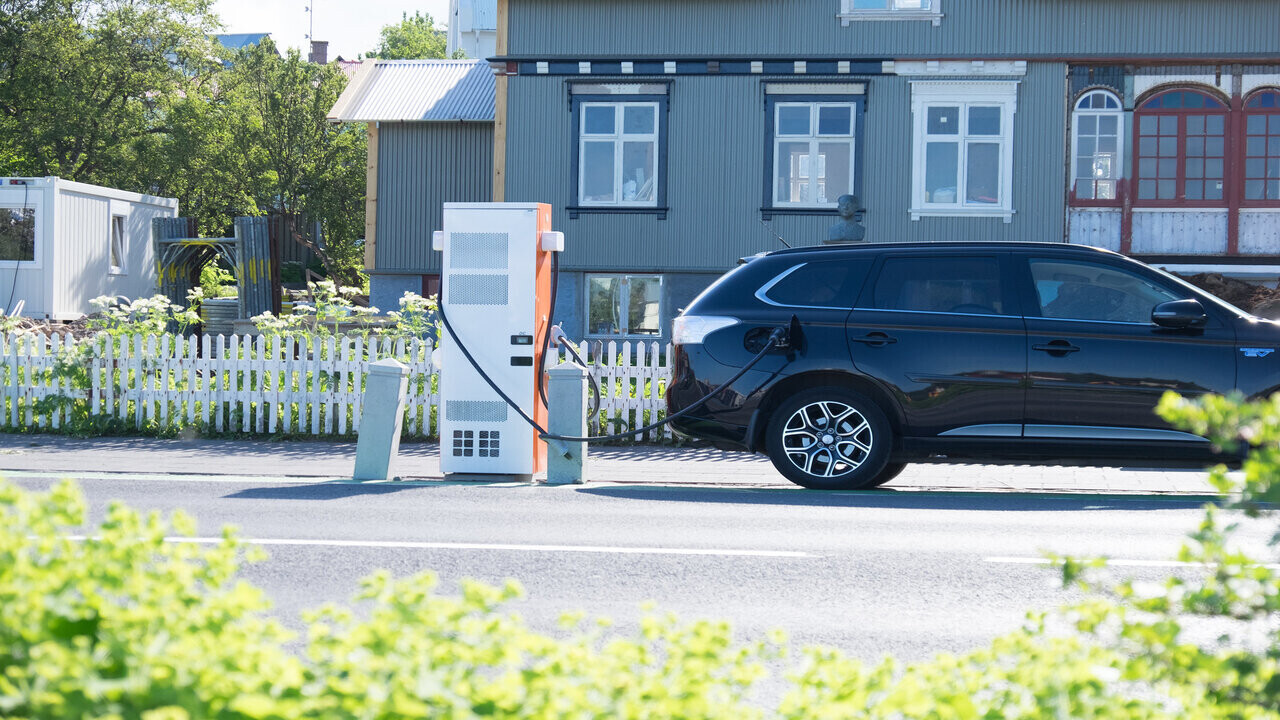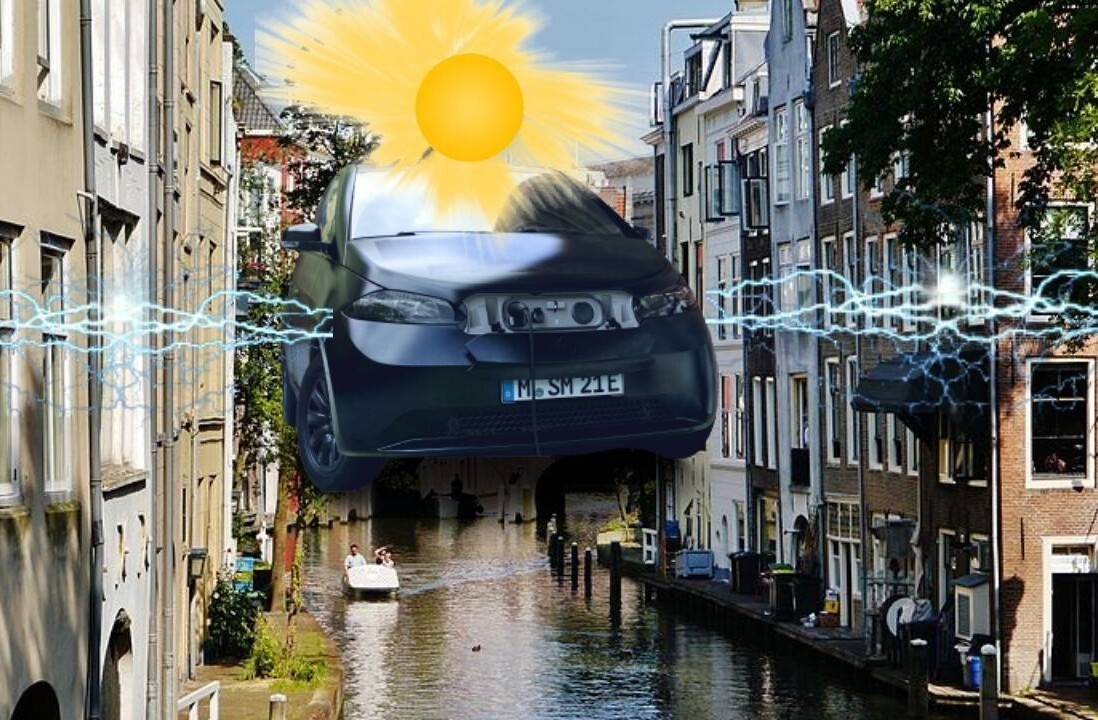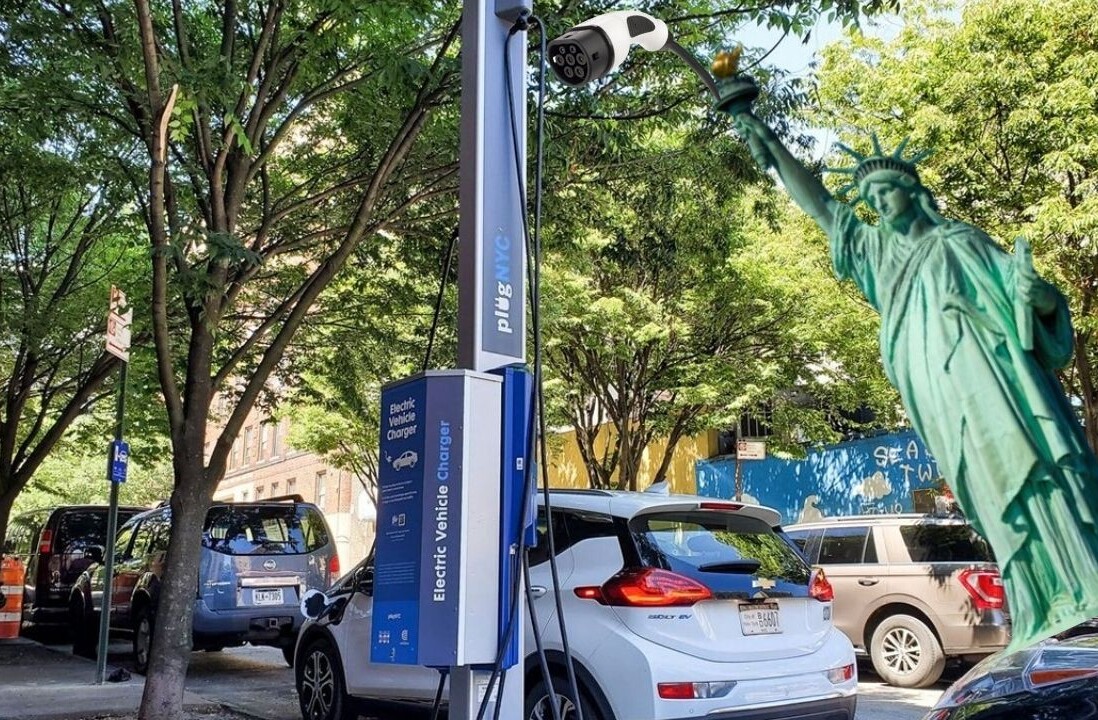
Did you know SHIFT is taking the stage this fall? Together with an amazing line-up of experts, we will explore the future of mobility during TNW Conference 2021. Secure your ticket now!
Over the last five years, the UK has rapidly ramped up its efforts towards electric vehicle (EV) adoption with a boost to EV charging infrastructure. But there are those in the media who are already peddling fear.
Yesterday, the Daily Mail reported that from May, every new EV charger will be preset to turn off for nine hours a day, automatically set to not function at ‘peak times’ to ease the pressure on the national grid.
They also mentioned a ‘randomized delay’ of up to 30 minutes if there is high demand from motorists.
The publication states that:
Under regulations lodged with the World Trade Organisation, new chargers in the home and workplace will by default not operate from 8am to 11am and 4pm to 10pm.
Before anyone starts panicking about Big Brother controlling their EV charging, take a breath. Let’s look at the actual facts in detail, as well as the questions they raise.
Firstly, here’s a copy of the actual 30 page document the Daily Mail based their article on “Electric Vehicle Smart Charging: Government Response to the 2019 Consultation on Electric Vehicle Smart Charging.”
So how did we get here?
TheAutomated and Electric Vehicles Act 2018 (AEV Act) passed which gives Government powers through secondary legislation to mandate that all EV chargepoints sold and installed in the UK have smart functionality and meet minimum device-level requirements.
In response, the Government did a big consultation with stakeholders and interested parties in 2019 and published a summary of responses to the consultation. Now they’ve written up the Government’s policy response.
So it’s basically a case of here’s what people said, and here’s our response with a two-phase plan. I’m not going to summarise the whole document.
But the media mostly discusses the first phase. It includes minimum standards around cyber security, interoperability, and grid stability — all good stuff. All ignored by the Daily Mail.
So let’s break down the two big issues worrying everyone. These are peak time restrictions and randomized display functions.
Default setting for peak times in smart chargers
Firstly, to be clear, public chargers and rapid chargers, on motorways are exempt from peak times. So, the risk of running out of energy on a motorway is not as great as many fear.
The much feared default off-peak mode would delay charging until a specified off-peak time.
Smart charge points will come pre-set to prevent automatic charging during peak times. Peak times are 8 am to 11 am and 4 pm to 10 pm on weekdays.
The legislation specifies time windows instead of an off-peak period, to avoid the risk of causing a secondary peak period.
However, the user must be able to edit or remove this setting. This can accommodate night shift works and those already using smart tariffs.
An opportunity for competitive pricing and service offerings for EV owners
This is where things actually get really interesting for consumers. Smart energy meters will be compulsory in UK homes by 2025.
As a result, many utility companies have created competitive tariff offers for EV owners who do most of their EV charging at home and typically consume more energy:
- Utility company Good Energy offers the EV Driver 4 tariff, a reduced unit rate, and standing charge compared to our standard variable tariff.
- Octopus energy offers a flexible tariff with four hours of 5p/kWh super off-peak electricity every night from 12:30-04:30 am – a great option for EV charging. (Incidentally their sister company Octopus Electric Vehicles is working on a demo project for residential vehicle-to-grid (V2G) – called Powerloop – where car batteries can be used to store green energy for future use.
- Jedlix matches a sustainable energy plan to your driving needs. Using the Jedlix app, you indicate when you want a fully charged electric car. The app then calculates an optimal charging plan for your vehicle. In the process, it takes your requirements, the available capacity on the power grid, the availability of sustainable energy, and the price of energy into account. This helps to keep the energy network balanced.
EV charging and grid stability: randomized delay function
The government is requiring smart EV charger makers to ensure they have a function that randomly delays the start time of any load control action. This randomized delay function will help reduce the risk of potential grid stability issues where large numbers of chargepoints switch on or off at the same time.
What this means in plain language is that the Government is setting a rule that delays EV charging in times of serious grid instability.
It’s really not all that exciting as they stipulate that “the chargepoint must be configured in a way that allows the user to override this delay function.”
Further, it’s not unusual, home smart meters already have a remote disconnect contactor, making it possible to switch them off in significant times of peak demand. When I lived in Australia, this included during severe bushfires, and there were always ways to get an exemption.
I am more concerned over a potential scenario where utility companies could use this as a competitive advantage by disconnecting first those who pay the least for electricity — it’s hard to benefit from the competition without the money to have a meaningful choice.
However, local energy networks existed long before electric vehicles. They’re constantly expanding the use of wind and solar to meet customer demand and government targets.
In turn, we’re likely to see the acceleration of new innovation that maintains the integrity of the grid.
Mandatory EV charging in new homes and offices
It’s also worth putting this news in the wider context of the EV rollout in the UK.
In a world-first, the British government is introducing legislation later this year that requires all newly built homes and offices to feature EV chargers in England.
Announced by Transport Minister Rachel Maclean, the law will see new homes equipped with devices to automatically charge vehicles during off-peak periods. New office blocks will need to install a charge point for every five parking spaces.

The Government predicts that the mandate for home and office will begin in 2022.
Can home EV charging help accelerate EV adoption?
Ok, mandatory EV chargers are awesome. But what if you live in an apartment building without a car park?
According to EV charger company Ubitricity, more than 60% of households in English cities are without off-street parking. This rises to 68% for people living in social housing. For this substantial group, access to affordable street-based EV charging will be essential to enter the EV market.
However, we’re also seeing an international trend of homes deliberately built without a car park. Instead, residents have easy access to car sharing, micromobility, and public transport.
Cars spend over 90% of their day unused, and the need for car parks will likely decline over the next couple of decades.
I never thought I’d compliment a Tory government
What we do see in all of this is a government with a plan. They’re not just dreaming about banning petrol and diesel car sales from 2030, and achieving net-zero emissions target by 2050.
Instead, they have introduced legislation and detailed to achieve these goals. They’ve welcomed extensive consultation, and allocated money to aid the process (I’m sure it’s not enough, but it never is).
I never thought I’d compliment a Tory government, but I come from Australia. The Australian government’s greatest environmental legacies are climate inaction and its love of coal.
The UK, in contrast, has a budget and plans to which it can be held accountable.
This year’s United Nations Climate Change Conference, aka COP26, is coming up soon. It will be interesting to see how other countries EV charging commitments stack up.
Do EVs excite your electrons? Do ebikes get your wheels spinning? Do self-driving cars get you all charged up?
Then you need the weekly SHIFT newsletter in your life. Click here to sign up.
Get the TNW newsletter
Get the most important tech news in your inbox each week.





